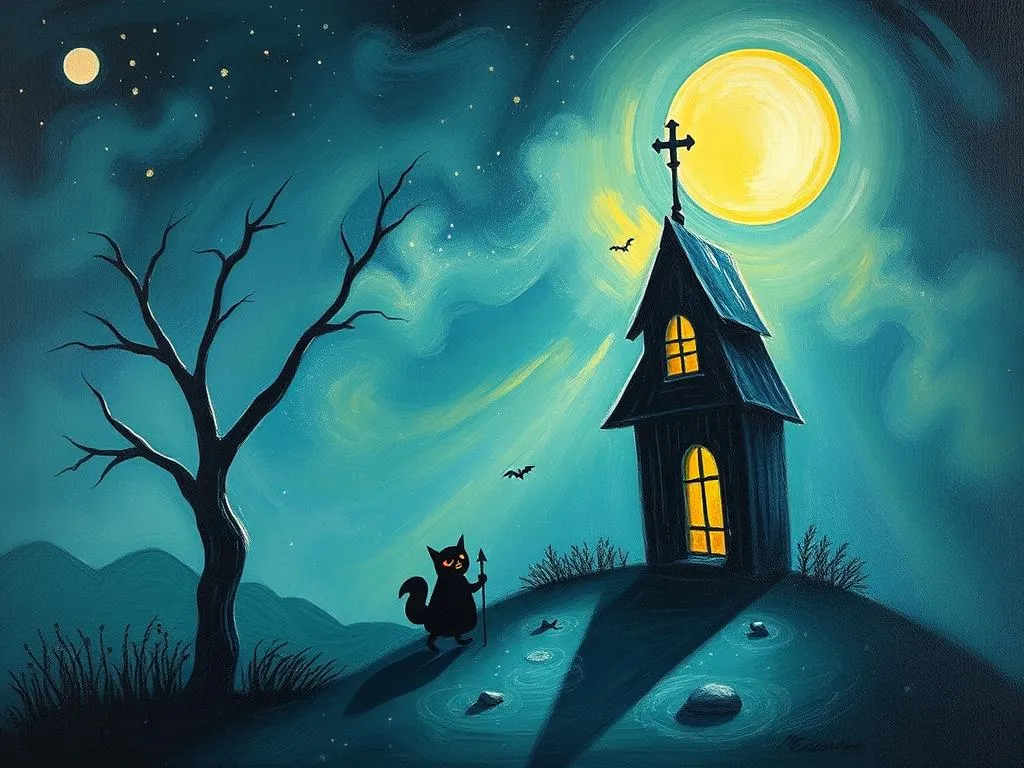
Introduction
Dreams have long captivated the human imagination, serving as a window into our subconscious minds. Among the myriad themes that appear in our nightly adventures, shadows hold a particular intrigue. They often evoke feelings of fear, mystery, and curiosity. Why do shadows emerge in dreams, and what do they signify? Understanding the nature of these shadowy figures can reveal much about our inner conflicts and emotions. This article will delve into the symbolism and meanings of shadows in dreams, explore various scenarios in which they appear, and discuss how these dreams can connect to our waking lives.
Symbolism and Meaning
Shadows in dreams often symbolize aspects of ourselves that we may not fully acknowledge or confront. They can represent repressed emotions, fears, or unacknowledged desires. The presence of a shadow might indicate that there are parts of your personality or experiences that you are avoiding or that you are struggling to integrate into your sense of self. For instance, if you dream of a shadowy figure pursuing you, it could reflect your desire to escape from unresolved issues or confrontations in your life.
The interpretation of shadows can vary based on personal experiences and cultural backgrounds. In some cultures, shadows are viewed as harbingers of bad omens, while in others, they may symbolize protection or guidance. This duality suggests that the meaning of shadows can be both negative and positive, depending on the context of the dream and the emotions felt during it.
Additionally, shadows can serve as a metaphor for the unknown. They embody the parts of life that remain hidden from us, representing our fears of what lies beneath the surface. This concept resonates with the idea of the shadow self, a term popularized by psychologist Carl Jung. The shadow self comprises the traits, emotions, and desires that we suppress to conform to societal norms or personal ideals. By acknowledging these shadows in our dreams, we may begin to understand the complexity of our identities and the importance of embracing all facets of ourselves.
Key Scenarios and Variations
The context in which shadows appear in dreams can greatly influence their interpretation. For example, dreaming of a shadow that feels threatening can evoke anxiety or a sense of impending doom. This type of dream may suggest that the dreamer is grappling with feelings of fear or insecurity in their waking life. The specific characteristics of the shadow—its size, shape, or actions—can provide further clues. A large, looming shadow might represent overwhelming stress or a significant challenge that feels insurmountable. Conversely, a smaller shadow could suggest minor worries or concerns that are manageable but still require attention.
Another common scenario involves the dreamer being unable to run away from the shadow. This scenario might symbolize feelings of being trapped or overwhelmed by certain aspects of life. If the dreamer feels paralyzed by fear, it could indicate that they are avoiding confronting a significant issue, whether it be a relationship, career decision, or personal goal. Recognizing this in the dream can be a powerful catalyst for change.
Alternatively, shadows can also represent aspects of ourselves that we are beginning to acknowledge. For instance, if a dream features a shadow that transforms into a more recognizable figure or a source of light, it may signify a journey toward self-acceptance and personal growth. This transformation indicates that the dreamer is moving toward embracing their inner complexities rather than shunning them.
It is also essential to consider the emotional tone of the dream. If the shadow evokes feelings of comfort or safety, it may represent a protective aspect of the self, suggesting that the dreamer is learning to integrate their shadow self positively. In contrast, if the shadow invokes fear or discomfort, it might signal an urgent need to address unresolved issues or emotions that have been lurking beneath the surface.
Real-Life Connections and Takeaways
Understanding the significance of shadow-related dreams can lead to profound insights about our waking lives. When you encounter a shadow in your dreams, take a moment to reflect on the emotions it evokes. What feelings arise when you think about this shadow? Does it represent a fear, an unresolved conflict, or perhaps a part of yourself you have yet to acknowledge? Engaging in this self-reflection can help illuminate aspects of your life that may need attention or healing.
One practical approach to connecting these dreams to real-life situations is to keep a dream journal. Document your dreams, focusing on the details of the shadow and any associated emotions. Over time, patterns may emerge, revealing recurring themes or issues that warrant further exploration. This practice not only enhances dream recall but also fosters a deeper understanding of your subconscious mind.
Moreover, consider the idea of mindfulness. Practicing mindfulness in your waking life can help you become more attuned to your emotions and thoughts. By cultivating a sense of awareness, you may find it easier to confront the shadows that emerge in your dreams. Engaging in activities such as meditation, yoga, or journaling can facilitate this process, promoting a more profound connection to your inner self.
Another takeaway is the importance of embracing vulnerability. Shadows often represent parts of us that feel vulnerable or exposed. Acknowledging these feelings and allowing yourself to be open to exploring them can lead to tremendous personal growth. Instead of shying away from uncomfortable emotions, consider confronting them head-on. This may involve having difficult conversations, seeking therapy, or simply allowing yourself the space to feel and process your emotions.
In conclusion, dreams featuring shadows can offer valuable insights into our inner worlds. By reflecting on the emotions and scenarios surrounding these dreams, we can begin to unravel the complexities of our identities and confront the challenges we may face in our waking lives. Embracing the shadows lurking in our dreams can ultimately lead us toward greater self-acceptance and understanding. The next time you encounter a shadow in your dreams, take the opportunity to listen to what it may be trying to tell you. It could be a pivotal moment in your journey of self-discovery.







